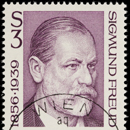
Chair: Kieran O’Doherty
Email: odohertk@uoguelph.ca
Mission:
The purpose of this Section is to promote the development of History, Theory, and Qualitative Inquiry in Psychology as a special interest area in psychology. In pursuance of this purpose, the Section:
- provides information to members about current activities, events, research and practice developments in the area;
- organizes sessions at the annual CPA Convention that are of interest to members;
- represents the interests of the Section within CPA through initiating such activities as position papers, policy statements, and special meetings; and
- makes representations, on behalf of its members to external organizations or agencies with the approval of the Executive Committee of the CPA Board of Directors.
What Does History and Philosophy of Psychology Mean to Psychology?
Psychology often prides itself on being an empirical science. Students, for example, are often told to focus their research papers on the last 10 years of research because it is important to keep abreast of current findings. The role of people that do historical work or philosophical-theoretical work could seem out of place. The field of History and Philosophy of Psychology (HPP) is broad and so any response is incomplete, but here are three principles that can articulate a part of what the field is all about.
Principle of Synthesis.
This approach means to look beyond empirical findings to discuss what we are doing in psychology more generally. Many research programs in psychology involve countless studies arranged side by side and there is little work that steps back to attempt to articulate what the myriad of work means. Addressing human psychology consequently requires broad synthetic engagement with conceptualizations.
Late (post)modern intercultural interconnectivity and postcolonial discussions about decolonizing psychology call for humility. There is an overwhelming demand for conceptual clarification and at least one discipline ought to focus on large scale questions and the sociopolitical implications entailed therein. Synthesis is bringing together a wide range of research and theory in way that involves rigorous sifting and weighing the complexities of conceptualizations in a given problem.
Principle of Purposiveness.
This principle means that HPP should work alongside other disciplines in psychology with an eye to how it can support and, where appropriate, challenge these disciplines. Purposiveness is about engaging and authentic problem solving. HPP addresses some sort of phenomena in a given discipline by being aware of the subject matter through taking a broad view and then articulating what can be done about the problem under study.
The purpose of HPP is to engage in penetrating conceptual analysis – i.e. doing more than literature reviews – that is in dialogue with empirical work seen more broadly in psychology. Acting according to a principle of purposiveness means foregrounding that a central purpose of HPP is to engage and speak to the meaning of empirical work and practical problems.
Principle of Theoretical Flexibility.
HPP maintains “mobility in [their] manner of looking at things, in order to be able, from time to time, to group facts and assumptions differently, and visualize them in a new light or a new arrangement… Such propositions can sometimes perform good service as working hypotheses, but they must not be set up as dogmas at the portals of theoretical investigation.” (Lindworsky, 1932, pp. 7-8). Paradigms often constitute what counts as empirical observations and HPP involves paradigmatic flexibility that can reimagine the meaning of observations.
HPP involves reading widely to grasp multiple paradigms in a manner that is not required by psychologists working within a particular empirical domain. Reading widely is exactly what enables HPP to move from the vain attempt to have no presuppositions to critical dialogue. Engaging in a wide range of work over a period of time allows for discussion and debate about paradigms that are taken for granted.
In sum, HPP involves flexibility and equips psychologists to take a synthetic view that can act according to the principle of purposiveness. These three principles would enable HPP to work within the field of psychology while also offering important voices of critique. They also facilitate new developments and further refine the role of theoretical work in the discipline of psychology.
References
Lindworsky, J. (1932). Introduction. In Theoretical Psychology (pp. 1-12). H. De Silva (Trans.). St.
Louis, MO: Herder Book Co.
